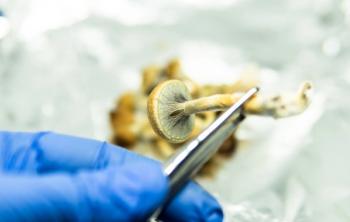
The Prospect of Experiential Training
A look into the experiential learning process involving ketamine.
A KETAMINE JOURNAL
Early in the learning process, I discovered that in-person ketamine-assisted psychotherapy (KAP) trainings are experiential. Those who learn to do KAP often try it for themselves with onsite supervision.
When it comes to substances, my experience is limited. While other teenagers were experimenting with drugs, I was either in the library or getting ice cream (my substance of choice) with friends. I am no longer a teenager; I am 30 years into my career and at a strange time of life to be taking psychedelic journeys.
To be clear, the experience is offered—it is not a requirement. I registered to take a 4-day training with the Psychedelic Research and Training Institute (PRATI), and for months I was anxious about the prospect of a ketamine dissociative experience.
My first thought was that this is unusual and unnecessary—no one ever suggested that I needed to swallow Seroquel or lithium to be a psychiatrist. And yet, I was very curious. Perhaps I have reached the age where taking risks feels like a “now or never” opportunity. And although sampling medications is not a requirement of any specialty, having psychoanalysis is a prerequisite to becoming a psychoanalyst, so experiential training is not without precedent.
For psychoanalysts, trainees are required to have an analysis with a designated “training analyst.” An analysis with the wrong person, no matter how insightful, does not “count” toward psychoanalytic training. We put up with all sorts of dictates in the name of education, so I decided I would try a ketamine journey.
“Wait,” a colleague said. “You’re going to drop acid with 20 strangers?” It was an email, so I did not see his expression, but I think he was perhaps appalled.
“Yep,” I replied, although “acid” generally refers to lysergic acid diethylamide (LSD), not ketamine.
These journeys, I had read, may be wonderful, but they can also be frightening. I thought, What if I have unexpected insights—ones that rock my experience of self? What if I learn, for example, that my career has been meaningless, or that I do not love my family?
I voiced these concerns to a physician who had both studied and tried a number of psychedelics, including ketamine. She looked perplexed. “That doesn’t happen,” she said, and I felt relieved.
Then I read Michael Pollan’s How to Change Your Mind: What the New Science of Psychedelics Teaches Us About Consciousness,1 in which he mentions that individuals leave psychedelic journeys and decide they need to get divorced (and do). So maybe it does happen—but I decided that those individuals must have unhappy marriages while my 35-year marriage has been good. Another colleague assured me that any such insights would come with the wisdom that it really did not matter.
I hoped that KAP might offer relief to patients who are suffering, especially those who have negative ruminations. Many of the individuals I see have formed constructs to make sense of their lives and some of these constructs are rigid, self-defeating, and inaccurate. I hoped KAP might loosen some of this negativity, and clinicians with experience assured me this was a reasonable expectation.
As I met people who had gone through their own experiential training, I began asking, “Did it change you?” Mostly I heard that there was some anxiety that had vanished.
In KAP, the patient/participant predetermines something they want from the experience—a process called setting an intention. The instructions I received from PRATI indicated that setting an intention would be part of the experiential learning. I had months to think about this.
I started to regard this setting of an intention as something like making a list for Santa Claus or deciding my wishes for a genie who would pop out of a bottle. I began to tally all the things about myself I would like to change! But I thought, Is an intention a single thing? Should I roll all the things I want to change into a single category for change—something like more internal peace or to be more in touch with joy?
Knowing I would write about this, I found something else to worry about: Since I am a physician, could there be repercussions for using ketamine as part of a training experience? Was there anything wrong with doing this? KAP practitioners openly discuss this, and it is mentioned on the training websites. Although I knew other psychiatrists who had participated in experiential training, I was not aware that anyone had written about it.
I asked a physician who is familiar with our state medical board—he did not think it would be a problem. I also checked with PRATI to be sure they did not have objections if I wrote about my own experience, and they did not.
With the realization that life has some uncertainty, I decided I would move ahead with the risks involved in both trying ketamine and writing about it. My next post will be about my training experience.
Dr Miller is a clinical psychiatrist and writer in Baltimore. She is on the faculty at the Johns Hopkins School of Medicine.
Note: In these commentaries, Miller will discuss her experiences and thoughts as she explores issues associated with ketamine-assisted psychotherapy.
The views and practices expressed in these commentaries are solely those of the author and do not necessarily represent the position of Psychiatric Times or its editors.
Reference
1. Pollan M.
Newsletter
Receive trusted psychiatric news, expert analysis, and clinical insights — subscribe today to support your practice and your patients.







